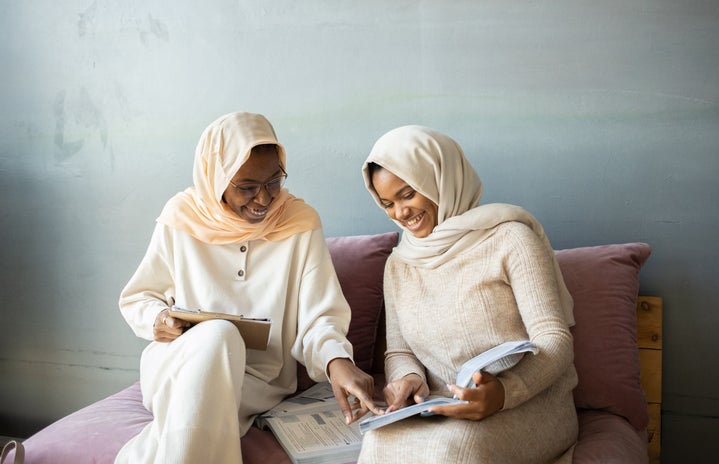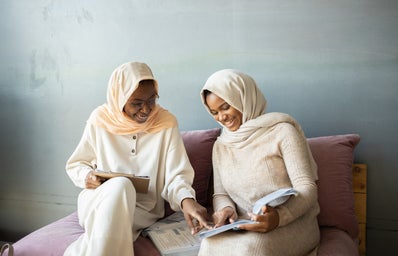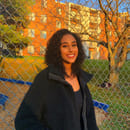Ramadan is the ninth month of the Islamic calendar in which Muslims (followers of Islam) partake in abstaining from food and drink from sunrise to sunset. There are certain circumstances in which people are exempt from fasting, including if the individual is ill, menstruating, pregnant or breastfeeding, traveling or a child.
On the other hand, children can begin (if they are so inclined) to practice fasting for half of the day rather than the full sunrise to sunset waiting gap, which is what my sisters and a lot of people in my community have done growing up. It was exciting for us to partake in the activities of Ramadan, but of course, as a child, I would want a cookie eventually.
Ramadan is the time in which we practice self-discipline and gratitude for the things we’ve grown accustomed to that are not guaranteed, like food and sex. During this month, followers of this faith take a 30-day break from the pleasures of this life to further their spiritual relationship with God.

These days are spent reading the Quran, partaking in charity work and giving money to those in need, and spending time with family. Fasting is also one out of the five pillars of Islam and is of high importance to those who follow this faith. The other four are the Shahada (a declaration of faith), prayer, completing a pilgrimage to Hajj (if the person is financially and physically able) and Zakat, which is a donation of a certain percentage made by the individual to help those in need.
My experience with Ramadan wasn’t always the easiest—especially during those terrible public school times where being different was like a curse—but I find myself appreciating and partaking in the month more and more as I age. Back in middle school, I almost held onto the fact I was fasting like it was a secret.
Occasionally during lunch, I would go to the library alone, and once I remember sitting in a bathroom stall reading a book until the 30-minute lunch block was over because I didn’t want to explain to people why it was I wasn’t eating. To be fair, the “friends” I had at the time were not actually my friends and because I never talked about my being Muslim back then. The teachers didn’t exactly offer any spaces for the Muslim students to sit that wasn’t the cafeteria.

There were some exceptionally beautiful instances, though, where I had teachers (more aware of the Islamic faith) who would casually mention in class that if anyone was fasting, they could sit either in the classroom or in another designated space, and when I tell you it would lift all the anxiety off my body, I do not mean that lightly.
At the time, it felt like at least if one of the white people here could speak casually about my identity, then maybe other people could understand. It felt like I had an advocate, and that gave me strength. This is a pretty common experience (at least within my friend group) of what it’s been like growing up Muslim in America.
Today I experience Ramadan fully and openly, and thankfully am no longer looking for validation from people who would never understand who I am or even care to listen. Kindness goes a long way, and in my youth, I wish others had known that not understanding something did not warrant bad behavior toward those things not understood.
Take the time to ask your Muslim friends how their Ramadan is going and ask questions! I guarantee you both you and your friend would thoroughly enjoy sharing those intimate practices of each other not often spoken about. Ramadan Mubarak!



